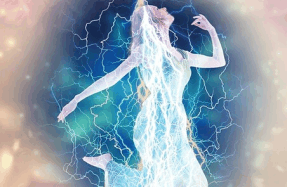
“Highly sensitive people tend to take more time observing before acting, but with good reason: they simply have more sensory data to process”
It wasn’t until 1986 that British miners stopped taking caged canaries into the mines with them as an early warning system against carbon monoxide poisoning. Canaries are sensitive to toxic gases undetectable by humans, and if the birds kept singing, the miners were safe. A silent or dead canary meant immediate evacuation.
For many highly sensitive people (HSPs), the role of the fragile songbird is a potent symbol of their ability to perceive subtleties in the environment that others miss.
It is also a symbol of the double-edged nature of high sensitivity as both blessing and burden.
“We live in a very overstimulated world in Western culture, a lot of noise, a lot of flash, a lot of intensity, so the highly sensitive person can feel super overwhelmed,”says somatic therapist and integrative mind-body medicine practitioner Dr Jenny Cundari, ND.
“We also know what it’s like to feel disturbed, terrorized, depressed, scared, angry, sad—all the range of emotions, we feel them deeply in our bodies, and it can be incredibly uncomfortable.”
The term “highly sensitive person” was coined by clinical psychologist Dr Elaine N. Aron in the 1990s after she discovered that many of her sensitive clients were too easily categorized as anxious, shy or introverted—and stereotyped as neurotic—without an understanding of the biological processes responsible.
Alane Freund, a California-based marriage and family therapist, says she grew up being told she was far too sensitive. It’s a refrain familiar to highly sensitive people.
“Both my parents are highly sensitive, but they wanted me to be okay. So they tried to drive it out of me, especially my dad, [saying] ‘You cannot go through the world like this, they’re going to eat you alive,’”she






